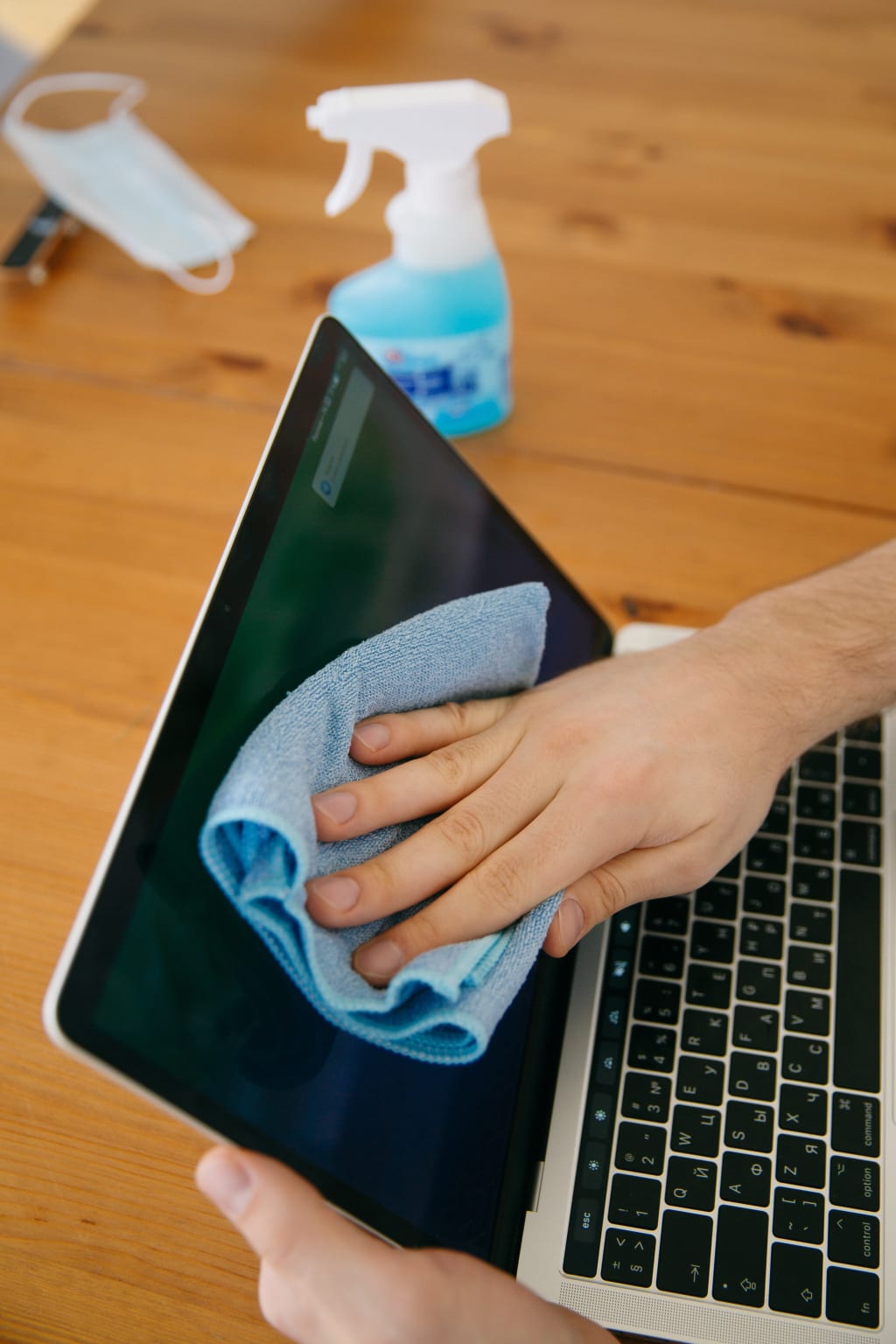
As laptops become increasingly essential in our daily lives, it's crucial to keep them in good condition to avoid any unnecessary breakdowns or costly repairs. Regular maintenance can go a long way in keeping your laptop functioning well for longer. In this article, we'll explore some tips on how to maintain your laptop to ensure it stays in good condition and runs efficiently.
1. Keep It Clean
The first and most important thing you can do to maintain your laptop is to keep it clean. Over time, dust, dirt, and other debris can build up inside your laptop, which can cause it to overheat, slow down, or even break down. To prevent this, it's important to clean your laptop regularly.
Start by wiping down the exterior of your laptop with a microfiber cloth to remove any dirt or fingerprints. Use a can of compressed air to blow any dust out of the vents and keyboard. Be sure to hold the can upright and avoid spraying it too close to the laptop to prevent any liquid from entering the device.
For a more thorough cleaning, you can remove the battery and use a soft brush to clean the inside of your laptop. Just be sure to do this carefully and avoid touching any delicate components.
2. Avoid Overheating
Overheating is one of the most common issues that laptops face. It can cause the system to slow down or even shut down unexpectedly, and it can also damage the internal components of your laptop. To prevent overheating, make sure that your laptop is properly ventilated.
One way to ensure proper ventilation is to use your laptop on a flat surface rather than on your lap or on a soft surface such as a bed or couch. This allows air to flow freely through the vents and keeps your laptop cool.
You can also use a cooling pad or a stand with a built-in fan to help circulate air around your laptop. These accessories are particularly useful if you frequently use your laptop for intensive tasks such as gaming or video editing.
3. Update Your Software Regularly
Updating your software regularly is another crucial step in maintaining your laptop. Updates not only improve the performance of your laptop but also fix any bugs or security vulnerabilities that may be present in your system.
Most operating systems and software applications have automatic update features that you can enable to keep your laptop up to date. However, if you prefer to manually update your software, make sure to check for updates regularly.
4. Uninstall Unnecessary Programs
Over time, you may accumulate a lot of unnecessary programs on your laptop that can slow down its performance. These programs may run in the background and consume system resources, making your laptop run slower than it should.
To avoid this, regularly review the programs installed on your laptop and uninstall any that you don't need. You can use the built-in uninstaller in your operating system or a third-party uninstaller program to remove unwanted programs.
5. Protect Against Malware
Malware such as viruses, spyware, and adware can cause serious damage to your laptop's performance and security. To prevent malware from infecting your laptop, you should take the following steps:
- Install a reputable antivirus program and keep it updated.
- Avoid clicking on suspicious links or downloading files from untrusted sources.
- Use a pop-up blocker to prevent unwanted pop-ups from appearing.
- Enable your firewall to protect against unauthorized access to your system.
6. Backup Your Data
No matter how careful you are with your laptop, accidents can still happen. If your laptop breaks down or becomes infected with malware, you could lose all your important files and documents. To prevent this, it's important to regularly backup your data.
You can use cloud-based services such as Google Drive, Dropbox, or iCloud to store your files online and access them from any device. Alternatively, you can use an external hard drive or USB drive to store your files locally. Whatever backup method you choose, make sure to do it regularly to ensure that your data is always protected.
7. Be Careful with Hardware
Laptops are delicate devices, and mishandling them can cause serious damage. To avoid hardware issues, be careful when plugging and unplugging cables, inserting and removing peripherals, and handling your laptop in general.
Avoid yanking on cords or cables, as this can damage the ports and connectors on your laptop. When inserting and removing peripherals such as USB drives or external hard drives, make sure to do it gently and avoid bending the connectors.
It's also a good idea to store your laptop in a protective case or sleeve when you're not using it, especially if you're carrying it in a bag or backpack. This can help protect it from scratches, bumps, and other damage.
Conclusion
In conclusion, maintaining your laptop doesn't have to be difficult or time-consuming. By following these simple tips, you can keep your laptop running smoothly and prevent any unnecessary breakdowns or repairs. Remember to keep your laptop clean, avoid overheating, update your software regularly, uninstall unnecessary programs, protect against malware, backup your data, and be careful with hardware. By taking care of your laptop, you can ensure that it serves you well for years to come.
About the Creator
Wilson B.
Start writing...






Comments
There are no comments for this story
Be the first to respond and start the conversation.